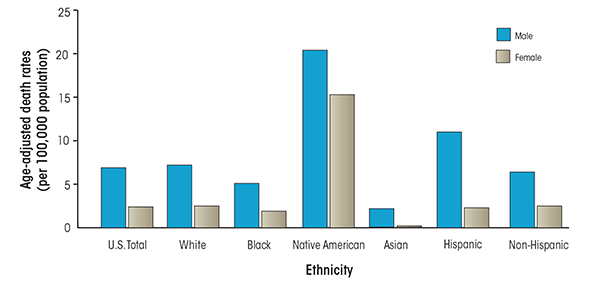Abstract
Background
Racism, and resultant racial/ethnic discrimination is a ubiquitous social determinant of health that is linked to adverse alcohol-related outcomes. To our knowledge, no studies have examined whether manifestations of racial/ethnic discrimination increase risk of DSM-5 alcohol use disorder (AUD) severity levels.
Methods
Analyses were conducted among 17,115 racial/ethnic minority respondents of the National Epidemiologic Survey on Alcohol-Related Conditions III (NESARC-III), a cross-sectional survey fielded in 2012−2013. We used multinomial logistic regression to examine the associations between measures of racial/ethnic discrimination and past-year AUD severity levels following the DSM-5 definition, while adjusting for poverty thresholds set by the U.S. Census Bureau, and race/ethnicity (American Indian or Alaskan Native; Asian, Native Hawaiian, or Other Pacific Islander; Black or African American; Hispanic or Latino). We also evaluated whether associations between discrimination and AUD severity varied by poverty status and race/ethnicity.
Results
Covariate-adjusted multinomial logistic regressions suggested that in comparison to those who did not experience discrimination, those who experienced discrimination had a 1.5-fold greater risk of mild AUD, a 1.6-fold greater risk of moderate AUD, and a 2.3-fold greater risk of severe AUD. We found no evidence to suggest that the strength of the association between racial/ethnic discrimination and AUD severity varied across race/ethnic group or poverty status.
Conclusions
Experience of racial/ethnic discrimination is associated with greater AUD severity in the U.S. regardless of one’s specific racial/ethnic group membership or poverty status. Strategies to reduce risk for severe AUD should include efforts to minimize the occurrence and impact of interpersonal and institutional racism.




